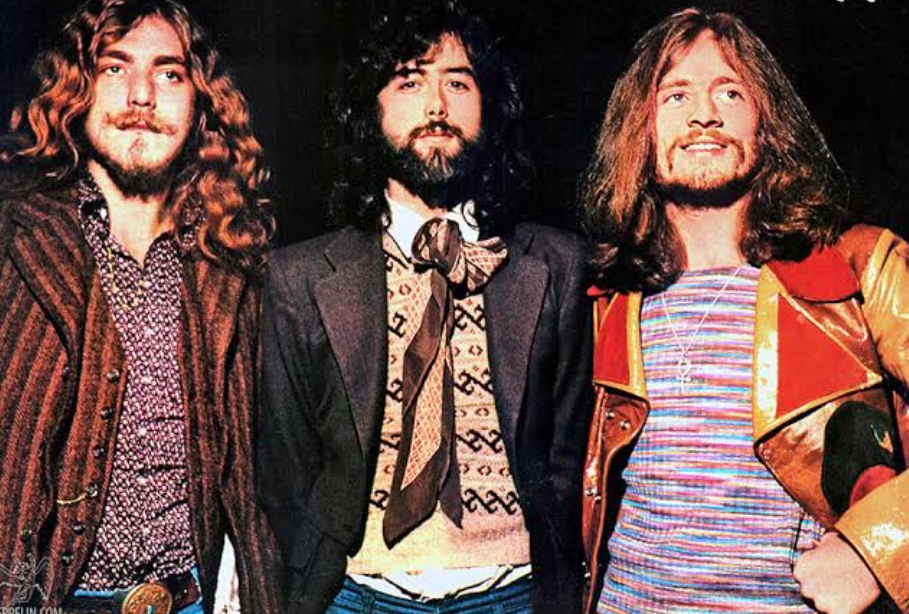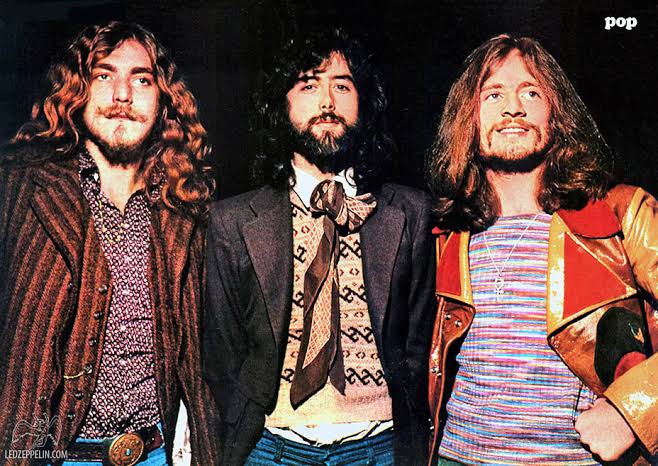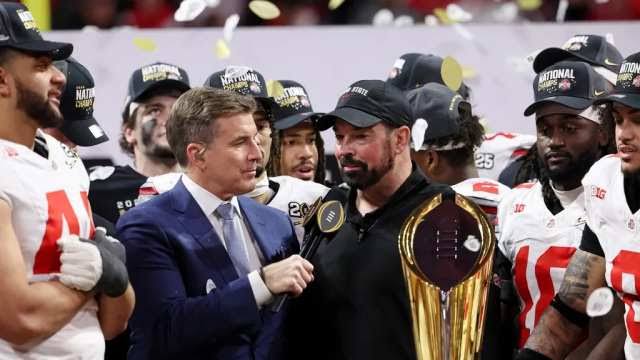

Breaking News: Netflix Acquires Led Zeppelin Music Catalog for $15 Million Read More



Breaking News: Netflix Acquires Led Zeppelin Music Catalog for $15 Million Read More




In an unexpected move that has taken the entertainment world by storm, streaming giant Netflix has announced the acquisition of the iconic Led Zeppelin music catalog for a staggering $15 million.
This monumental deal marks a significant shift in the landscape of music licensing and entertainment, positioning Netflix as a key player in not just film and television production, but also in the music industry. The acquisition is expected to have far-reaching implications for both the streaming service and the legendary rock band’s legacy.
A Groundbreaking Deal: Netflix’s Bold Move into Music
Netflix has long been a leader in streaming content, with millions of subscribers worldwide tuning in for its vast library of films, documentaries, and original television shows. However, this latest move represents a dramatic expansion of its business model. By purchasing the music rights to one of the most influential rock bands of all time, Netflix is positioning itself to diversify its offerings and integrate music in ways that could change the streaming landscape forever.
While the deal is valued at $15 million, industry insiders suggest that the true worth of the Led Zeppelin catalog could far exceed this number, given the band’s legendary status and enduring popularity. The catalog includes some of the band’s most iconic albums, including Led Zeppelin IV, Physical Graffiti, and Houses of the Holy. These records are not just musical milestones, but cultural touchstones that continue to resonate with audiences today.
Netflix has not revealed the specific terms of the deal, including whether it covers the rights to the band’s full catalog of studio albums, live performances, or unreleased tracks. However, the acquisition has sparked speculation about how Netflix will utilize this treasure trove of music in the future.
Led Zeppelin’s Enduring Legacy in Popular Culture
Founded in 1968, Led Zeppelin became one of the most commercially successful and critically acclaimed rock bands in history. The group—comprised of Robert Plant (vocals), Jimmy Page (guitar), John Paul Jones (bass/keyboard), and John Bonham (drums)—pioneered a sound that blended blues, hard rock, and folk, influencing countless bands across generations. Their innovative musicality, bold experimentalism, and legendary live performances have earned them a devoted fan base that spans continents and decades.
Even after the death of drummer John Bonham in 1980, which led to the band’s disbandment, Led Zeppelin’s music has remained ubiquitous. Their songs, including classics like “Stairway to Heaven,” “Whole Lotta Love,” and “Immigrant Song,” continue to play a central role in both pop culture and the music industry. In fact, the band has often been ranked among the greatest and most influential musical acts of all time. Their albums regularly appear on “best of” lists, and their music is frequently used in movies, television shows, and advertisements.
Netflix’s acquisition of their music catalog is likely to bring this rich legacy into an entirely new era, tapping into the vast potential of modern streaming and digital media.
What Does This Mean for Netflix’s Content Strategy?
The question that many are asking is: why would a streaming service primarily known for TV shows and movies spend millions to acquire a music catalog? The answer lies in Netflix’s broader content strategy, which is increasingly focused on diversifying and expanding its offerings to meet evolving consumer demands.
Netflix has already made significant inroads into music-related content, producing original documentaries such as Rolling Thunder Revue: A Bob Dylan Story and Homecoming: A Film by Beyoncé. These projects have been critical and commercial successes, proving that there is a sizable audience for high-quality music-related content.
By acquiring Led Zeppelin’s catalog, Netflix can now create exclusive documentaries, concert films, and even integrate Zeppelin’s music into existing or future TV shows and films. The platform could leverage its expansive reach to introduce the band’s music to a younger generation, potentially revitalizing the band’s fan base and introducing their timeless sound to the streaming generation.
A New Era for Music Licensing
The acquisition also signals a new phase in the ongoing trend of major entertainment platforms securing music rights. Traditionally, music catalogs were sold to major record labels, or sometimes independently, with licensing fees going to publishers and rights holders. But as streaming platforms continue to grow in influence, the lines between film, television, and music have blurred.
In recent years, services like Apple Music and Amazon Prime Video have also begun purchasing music catalogs, with Amazon notably acquiring the rights to the Beatles’ catalog in a multi-million-dollar deal. With Netflix following suit, this move represents a broader shift in the media and entertainment sectors, with streaming platforms seeking greater control over the content they offer.
For Led Zeppelin, the deal with Netflix may have been a strategic move to maximize the value of their catalog in a rapidly changing music industry. While the band members have largely avoided commercializing their music through traditional means, the rise of digital streaming and the demand for new content have created opportunities to monetize their legacy in novel ways.
—
The Future of Led Zeppelin Music on Netflix
So, what can fans of Led Zeppelin expect in the future? While it is still early to predict the exact shape of Netflix’s plans, there are a few possibilities worth considering.
1. Exclusive Documentaries and Biographies: One likely outcome of the deal is a deep dive into Led Zeppelin’s storied history. Netflix could produce a comprehensive documentary series exploring the band’s formation, rise to fame, and lasting influence on rock and roll. Given the wealth of archival footage and interviews with band members, this could become a major draw for both longtime fans and new audiences.
2. Live Concert Footage: Led Zeppelin is legendary for their electrifying live performances, and much of their music catalog is rooted in the energy and power of their on-stage shows. With Netflix’s massive platform, the streaming service could release previously unseen concert films or recordings of iconic live performances, offering fans a chance to relive the magic of a Led Zeppelin show. This could include rare footage or even remastered versions of their most famous concerts.
3. Integration in Netflix Original Content: Another likely avenue for the use of Led Zeppelin’s music is in Netflix’s original content. Whether it’s in the form of background music for shows or as part of the soundtrack for upcoming films, Led Zeppelin’s iconic sound could enhance the storytelling of a variety of genres. From dramatic moments to intense action sequences, Zeppelin’s timeless music can seamlessly complement the cinematic experience.
4. Exclusive Music Content: Finally, Netflix could look to expand into music-based content, similar to what services like Apple Music have done. This could involve exclusive performances, behind-the-scenes footage, or music videos that are only available to Netflix subscribers.
—
Conclusion: A New Chapter for Both Netflix and Led Zeppelin
Netflix’s acquisition of the Led Zeppelin music catalog for $15 million is a groundbreaking move that illustrates the ever-evolving nature of the entertainment industry. The deal not only highlights the growing power of streaming services in the music space but also provides a unique opportunity to celebrate and expand the legacy of one of the most influential rock bands in history.
For Netflix, this acquisition could set a precedent for future moves into the music industry, positioning the platform as a hub for exclusive content that spans beyond TV and film. As for Led Zeppelin, the deal ensures that their music will continue to resonate with audiences for years to come, reaching new generations of fans through the power of streaming.
Only time will tell how Netflix will integrate this iconic catalog into its platform, but one thing is clear: the future of music and streaming is about to get a whole lot more exciting.





